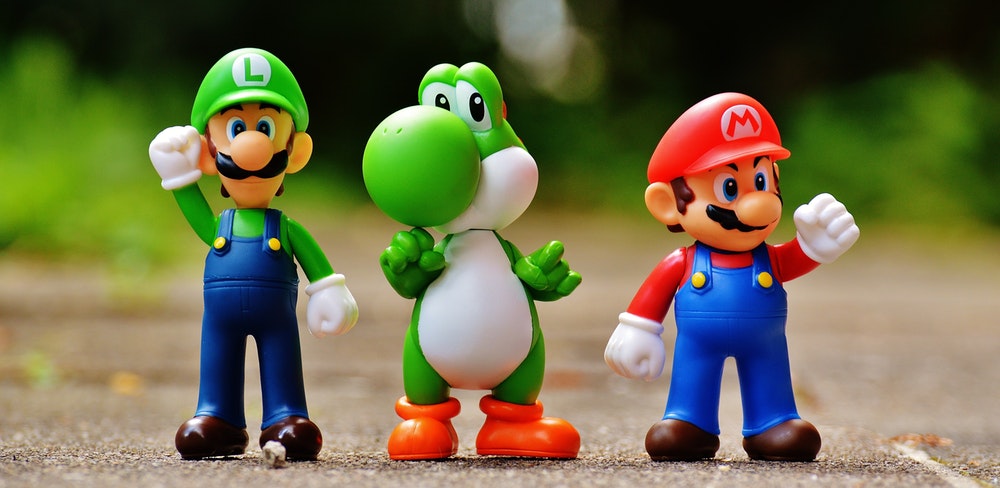
Can These Gamification Secrets Improve Your Sales Results?
Over the past few years, countless apps have been developed to harness the benefits of gamification. There are games for helping you get to the gym, games for helping you divvy up household chores, even games to help you reduce anxiety and boost your mood.
But can gamification also improve sales results? The answer is yes… and no. Let’s take a look at some sales gamification “secrets” that you need to know.
What Is Gamification?
The term “gamification” first appeared in common use to describe the process of using game elements to make other types of activities more fun and productive. Gamification, in technology, encourages specific behaviors and activities by tying them to a game-like framework and mechanics such as quests, achievements, and level-ups.
Though only popularized in the past few years, gamification has actually been around for as long as people have been giving stars to children for good behavior (and probably before that, too). At its simplest level, gamification is simply offering rewards for desired behavior. Game elements like achievements and defeating “monsters” gives our brains a shot of the chemical dopamine. Dopamine is the “reward” chemical and it feels good. The more a behavior gives us dopamine, the more we want to perform that behavior.
Modern game developers are simply very, very good at rewarding our brains with dopamine.
How Gamification Is Currently Used in Sales Departments
Most sales departments today already use elements of gamification, even if they don’t realize it. Leaderboards and other forms of friendly competition harness the natural desire to “win.” Setting sales quotas acts as a form of “questing” that activates the natural desire to achieve.
However, that doesn’t mean gamification in the sales department is always effective. In fact, sometimes these elements are counter-productive, such as when quotas are set unrealistically high. Just as achieving a “quest” can be motivating, failing to achieve one, especially if the failure occurs repeatedly, can be demotivating. If you’ve ever played a game with an impossible level that you can’t beat no matter what you do, then you know how demoralizing it can be. After a while, you might just don’t bother.
When Gamification Works… And When It Doesn’t
Besides the de-motivational effect of too-high quotas, there are other times when gamification is not effective for sales teams. One of the biggest mistakes organizations make in this regard is tying their game elements to lagging indicators. For instance, when rewards are offered for meeting quotas, but not for any of the behaviors that lead to meeting quotas. Certainly it feels good for a salesperson to get that reward, but if they’re not being guided in how to achieve the quota, then the best you can hope for is that your best achievers stay motivated and the rest… go somewhere else.
A better application of gamification in the sales department is using rewards to build new habits and positive behaviors tied to leading indicators. For instance, if you know that contacting certain key stakeholders is critical to winning deals, you can tie rewards to that indicator, and thus build that good habit very quickly.
Rewards don’t have to be monetary or large in order to be effective. in many of today’s games, a reward is simply a badge, or a number next to the player’s name indicating that they’ve “leveled up.” Likewise, “rewards” for small behaviors can simply be a checklist item turning green to indicate that it’s complete, and/or positive feedback for achieving a certain number of “greens” within a given time frame.
Gamification and Membrain
When I set out to build Membrain five years ago, I was lucky to bring on board an outstanding development team with a background in game development. This has enabled us to include many of the most important elements of gamification in our product. While no one will mistake Membrain for a massively multiplayer role playing game, it is easy to see how it is inspired by and powered by the human psychology of games.
For one thing, it is beautiful and intuitive to use, eliminating the friction that is so often associated with getting salespeople to use their tools. Additionally, it allows you to build your process directly into the workflow, including the most important behaviors and tasks at each stage of the process. It tags items in green when they are complete, and turns the item red when a salesperson attempts to move out of one stage before completing critical items. This has the effect of motivating salespeople to complete the desired behaviors in order to attain that green “go” flag… and to avoid skipping steps and getting the dreaded red mark.
The tool also provides managers and leaders visibility into which behaviors matter, so they can coach to reinforce those and ignore others. Then it tracks leading indicators, so the right behaviors can be rewarded early and often, which leads to better outcomes and builds better habits.
We have plans to roll out additional game-inspired features and tools in the coming year, so stay tuned for announcements. In the meantime, I’d love to give you a demo of our beautiful, award-winning product. Contact us today.

By George Brontén
George is the founder & CEO of Membrain, the Sales Enablement CRM that makes it easy to execute your sales strategy. A life-long entrepreneur with 20 years of experience in the software space and a passion for sales and marketing. With the life motto "Don't settle for mainstream", he is always looking for new ways to achieve improved business results using innovative software, skills, and processes. George is also the author of the book Stop Killing Deals and the host of the Stop Killing Deals webinar and podcast series.
Find out more about George Brontén on LinkedIn







